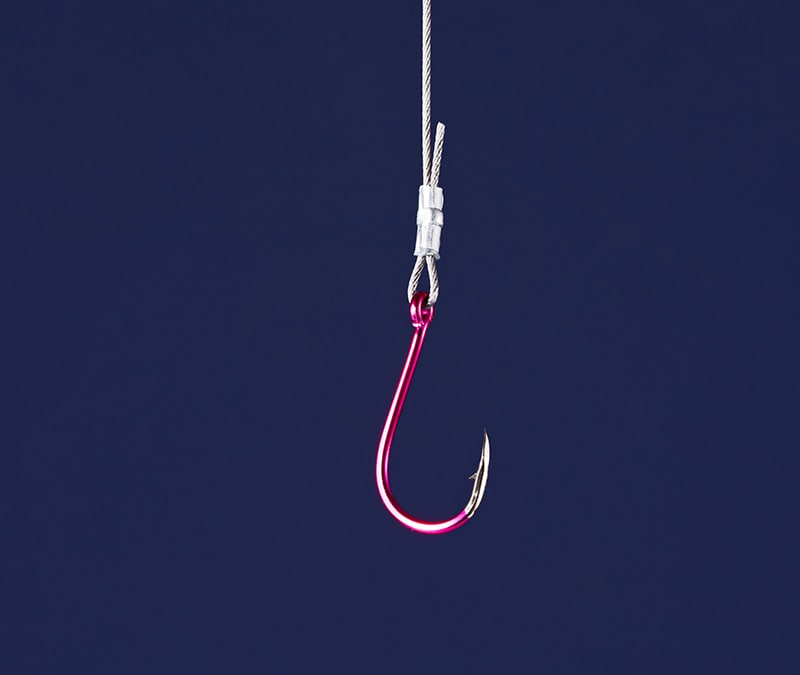Watch out for these party scams when you’re planning your big night out

Whether you’re celebrating a birthday, ringing in the new year, or scoring tickets to that must-see concert, don’t let scammers spoil the fun. Learn about these scammer’s party ploys.
The live music business reached a new peak in 2023, breaking the $25 billion mark for the first time ever. With concerts and festivals earning this much revenue, t’s no surprise that scammers are cashing in on the action.
Last year, it was all too common to hear the plight of a superfan buying a hard-to-get ticket through an online marketplace such as Vivid Seats. The scammer claims to be a verified seller, takes payment via Zelle, then vanishes. The buyer never receives their ticket and has no option for a refund.
It’s an all too familiar story. Scams like these proliferate around in-demand events and at festive times of the year—Christmas and New Year’s Eve, for example, and summer concerts and sporting events. So, if you get an invitation or a chance to buy tickets to one of these must-attend attractions, be sure you’re not buying into a scam.
Scammers don’t take holidays off
Here’s an idea for a new year’s resolution: Don’t fall for party scams.
Fake “All-Access” passes to premiere events like the annual New Year’s Eve celebration in New York’s Times Square, don’t exist. In fact, no tickets are needed for the free event, which is open to everyone on a first-come, first-serve basis. So be sure to check the official sites of such events.
In Raleigh, N.C., several hundred people found out the hard way that scammers don’t take holidays off. Eager to celebrate the new year in a memorable way, the would-be revelers showed up at a downtown bar for a New Year’s Eve bar crawl that never happened. Billed as “Raleigh’s #1 New Year’s Eve Bar Crawl,” the event was advertised on hugely popular online ticket retailer and promised drink tickets, food, photos, and free entry to four bars.
Some 400 people paid $70 each for tickets, but when they showed up at the alleged registration site, the promised festivities were nowhere to be found. The organizer never appeared and refused to answer calls or texts. Nor were any of the four bars part of planning or sponsoring the event. Eventually, the attendees realized they’d been had. Total haul for the scammer: about $28,000. No word on whether any funds were recovered.
A similar scheme, this one in Australia, had a slightly happier ending. Over 100 people paid $82 apiece for a New Year’s Eve yacht party off Adelaide’s coastline. But when they arrived to board the vessel, they were left standing on the dock. No boat ever came.
The scheme revealed the devious methods fraudsters will employ for a juicy payday. To make the yacht party seem legitimate, the scammers had stolen the identity and Australian business number (ABN) of a local real estate agent, then used an almost identical business name in their ad for the event. They also promoted the party on social media using account information they’d apparently copied from the realtor’s profiles.
The slightly happier ending? The online retailer agreed to refund the victims of the scam.
Don’t let restaurant scammers eat your lunch
Sharing a meal with friends and loved ones is a great way to celebrate at any time of year. But here, too, scammers have found ways to get into people’s wallets.
In one of the most common schemes, a scammer masquerading as restaurant staff calls back a customer and requests their credit card details in order to issue a refund or request a deposit. Early in 2023, a popular online restaurant reservation service sent an alert to app users warning about such scams.
In these and many other scams, fraudsters try to create a sense of urgency to pressure the victim into acting fast, and rashly. OpenTable’s advice to people who receive such calls: hang up and call the restaurant directly.
If it sounds too good to be true …
If a deal sounds too good to be true, it probably is—especially if the offer comes from an online marketplaces that doesn’t offer buyer protection, or in a pop-up ad or unsolicited text message.
A photographer received a text out of the blue from a man who wanted him to take pics of a surprise party the man was throwing for his wife’s 50th birthday. After time and location were agreed and a contract signed, the man insisted on paying up front with a cashier’s check. The photographer only wanted a deposit but agreed to the cashier’s check for the full amount, which the man claimed would help keep his wife from suspecting his plans.
After the man mailed the check for $2,250, he followed it with a text saying his secretary (who had supposedly made the check out) had accidentally included the event planner’s fee in the amount. The man then asked the photographer to pay the event planner via Zelle. By now, the photographer spotted the red flags. The photographer’s fee was $600, which meant he’d have to shell out $1,650 for the for the event planner.
A day later, the photographer received an almost identical text from a different number, this time looking to hire him to document a surprise birthday party for the sender’s stepfather. That’s when he realized he was the target of a scam and pulled out of the original plan.
Variations on this classic overpayment scam come in many stripes. But as tempting as a fat cashier’s check paid up front may be, it should be a huge red flag. If the photographer had paid the imaginary event planner, he would have been on the hook for that amount once the bank realized the cashier’s check was fraudulent.
Preventive steps
In addition to being wary of too-good-to-be-true offers, here are some steps to consider for avoiding scams.
- Be careful dealing with individual third-party sellers. Try to deal with reputable businesses instead of third-party individuals who are not associated with an event. Fake Facebook pages are easy to set up and sophisticated but illegitimate websites can easily impersonate logos.
- Think twice if the seller approaches you to purchase the tickets. If someone you do not know contacts you out of the blue offering tickets to a sold-out sporting event or concert, it might be a scam.
- Be wary of sellers who change the requested form of payment. Scammers often request payment methods that are difficult to trace or recover, such as wire transfers, cash, or gift cards.
- Use your credit card. Credit cards generally offer extra protection in case you find out the tickets were a sham. You may not get your money back if you pay with your debit card, a cash transfer app, or cash.
- Use a scam detection tool: Norton Genie is an AI-powered assistant that can help identify whether an email, text, or social media message is a scam.
- Use security software: Security software such as Norton 360 with LifeLock Select offers secure browsing with a VPN, protection from malware, and identity theft monitoring.
Editorial note: Our articles provide educational information for you. Our offerings may not cover or protect against every type of crime, fraud, or threat we write about. Our goal is to increase awareness about Cyber Safety. Please review complete Terms during enrollment or setup. Remember that no one can prevent all identity theft or cybercrime, and that LifeLock does not monitor all transactions at all businesses. The Norton and LifeLock brands are part of Gen Digital Inc.





Want more?
Follow us for all the latest news, tips, and updates.